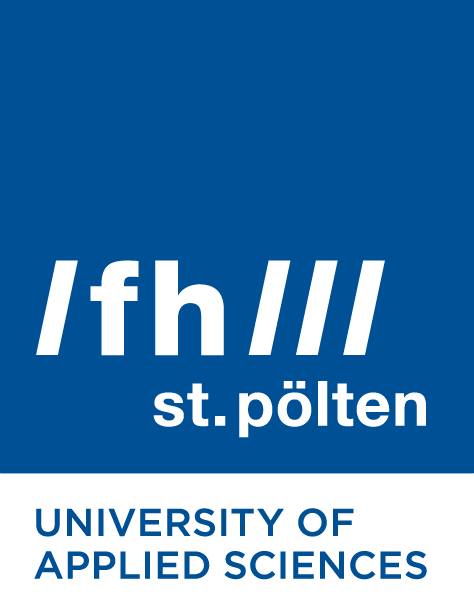Save the Date!
Connecting Europe!
How Education and Research Contribute to European Values
When: 25 – 28 November 2024
Where: St. Pölten University of Applied Sciences, Austria
Join us for Connecting Europe! – our International Week 2024 focusing on how education and research contribute to European values. Universities act as strong change agents in societies and innovation ecosystems in their respective regions and member states.
How can they actively engage in promoting, supporting, and developing European approaches to the current global challenges? How can education and research actively contribute to the future of Europe in terms of democratic values and openness?
Come to St. Pölten for an interactive and innovative exchange with HEIs and other stakeholders: keynotes and panel discussions, interactive formats, and co-creation sessions offer you the possibility to get to know best practices from different fields, discuss with experts from different sectors and interact with peers from different countries and cultures.
The following topics will be addressed during the International Week:
1. Interlinking Research & Education
Questions that will be addressed during this session are, e.g.:
- How do research activities contribute to innovative education in terms of formats, methods, contents and challenges?
- How to develop new courses and study programmes based on research areas?
- What is the contribution of research to the development of innovative and engaged teaching staff?
- How can education activities contribute to research topics and projects?
2. Citizen Science & Student Involvement
Questions that will be addressed during this session are, e.g.:
- How can students be actively involved in research and innovation activities and projects?
- How can citizens and societal players be actively involved in research definition and implementation?
- How can open science and open innovation be implemented with both students and citizens and other stakeholders?
- What challenges are to be overcome?
- How does Citizen Science help foster the exchange between students and broader society?
3. Building Strategic International Partnerships
Questions that will be addressed during this session are e.g.:
- What are the key factors for successful international partnerships?
- How to build strategic partnerships over time?
- How to develop a partnership from a singular / individual connection to a more strategic and structured cooperation?
- What measures help to further develop already existing partnerships and get them to the next level?
- How to involve players from different university areas in the development of international partnerships?
4. Open Resources for Education & Research
Questions that will be addressed during this session are, e.g.:
- What are the benefits and challenges of open resources?
- How to successfully use and possibly develop them in education and research activities?
- How to use open resources to actively promote knowledge sharing and exchange across borders?
- How can they be used to enhance learning experiences?
- How can they support research activities and projects?
- Can they help engage a broader community?
5. Capacity Building for International Initiatives
Questions that will be addressed during this session are, e.g.:
- What are the main challenges universities face when building up international activities?
- What support measures are helpful?
- What kind of capacity and know-how have to be developed and provided?
- What is specifically required from administrative units, like international offices, research or project offices, legal offices, or HR units?
- Which competences and resources have to be developed in the academic units?
- What kind of strategic and structured approach is required?
Further, a ‘World Café’ is planned on the first day of the International Week. Participants and representatives from different departments and service units will have the possibility to network and to get to know each other.
Target Groups
Representatives of Partner Institutions, Teaching Staff, Researchers, R&D Officers, Policymakers, Staff of Teaching and Learning Centers, International Offices, Curriculum Developers, Quality Managers, Stakeholders from the regional / national / international Higher Education and R&I Context (e.g. Funding Agencies and Regional Development)
Programm at a glance
Further information
Additionally, the following further activities will take place during the International Week (25–29 November 2024):
- Blended Intensive Programme (BIP) in the bachelor degree programme Rail Technology & Mobility
- Teaching Staff Week
We invite teaching staff from our partner institutions to hand in their proposals until 15 June 2024 to teach in one of the following lectures at St. Pölten UAS, taking place between 25–29 November 2024:
to be announced by mid/end April 2024
The respective International Coordinators of the Departments will get in touch with everyone who would like to contribute to one of the lectures mentioned above to clarify the details of the teaching content and time schedule. The minimum is 8 teaching units. Please ask your International Office for available Erasmus+ funding. Claudia Groetzl (claudia.groetzl@fhstp.ac.at) from the International Office of the St. Pölten UAS will support you with any organisational questions relating to your teaching staff mobility.
- International Conference on Creative\Media/Technologies
- Go International! Day on 28 November 2024

